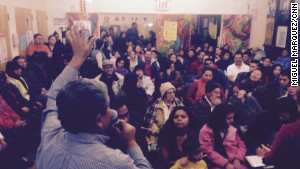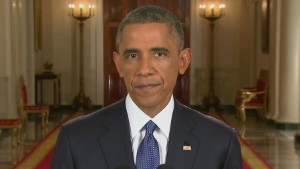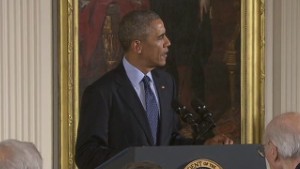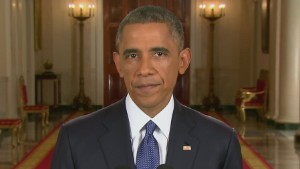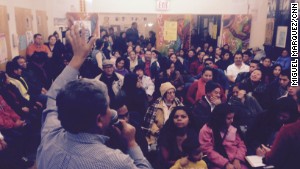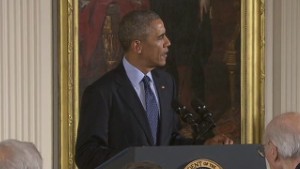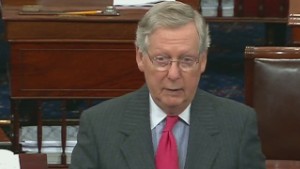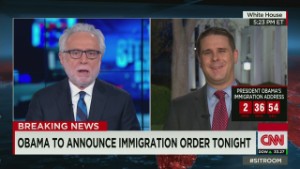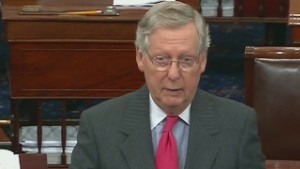Washington (AFP) – When President Barack Obama unveiled his immigration plan and Republican rivals howled their disapproval, the drama signaled not just a clash of political positions: it kicked off the 2016 presidential campaign.
Several likely Republican White House contenders — and a very prominent Democrat, Hillary Clinton — provided some of the most visible early reactions to the president’s controversial executive order.
Their statements helped draw the battle lines of Washington’s immigration warfare that is sure to extend all the way to the next national election, when Republicans will be seeking to end their eight-year White House drought.
And how both parties handle the deeply divisive issue may ultimately help decide who their next presidential nominees will be.
Obama’s Democrats appear eager to lock in the Hispanic vote early.
“I support the president’s decision to begin fixing our broken immigration system and focus finite resources on deporting felons rather than families,” Clinton, the 2016 Democratic frontrunner, said in a statement that earned attention in part for the swiftness of its release after Obama’s announcement.
Clinton often declines to weigh in quickly on sensitive issues, keeping her options open ahead of a likely declaration of her candidacy some time next year.
There was no hesitation on immigration, as she justified her support of the plan by calling congressional inaction an “abdication of responsibility” on the part of House Republicans.
Senator Elizabeth Warren, a potential presidential challenger from the left, also said action was needed due to House Republicans failing to act after the Senate passed a bipartisan immigration reform bill last year.
“If House Republicans won’t do their jobs, it’s time for the president to do his,” she said.
Republicans claim they want to return the presidency to its constitutional principles and leave the legislating to Congress, a paramount guidepost for conservatives who feel Obama has abused his executive authority.
“President Obama is not above the law and has no right to issue executive amnesty,” Senator Rand Paul, a Tea Party favorite for 2016, said of Obama’s plan to temporarily shield millions of undocumented migrants from deportation.
“I will not sit idly by and let the president bypass Congress and our Constitution.”
- Crucial Hispanic vote -
Paul is likely in a tricky spot. For months, he has positioned himself as his party’s compassionate supporter of minority groups.
But opposing Obama’s plan could put Paul at odds with an increasingly influential Hispanic voting bloc, some 71 percent of whom voted for Obama in 2012.
And yet in order to win the nomination, Republican presidential contenders will need to prevail in primary races where core party values are front and center.
Conservatives, who largely oppose immigration reform, are often the all-important voters in Republican primaries.
The White House is well aware that an all-out sabotage of immigration reform by Republicans would not sit well with the broader American electorate.
“Reality check: No one who promises to reverse this executive order will be elected president in 2016,” David Axelrod, a former senior advisor to Obama, posted in a Republican-goading tweet.
Democrats may well have fast-tracked Obama’s deportation deferment in order to force Republicans into an internal war, pitting House Speaker John Boehner against his caucus’s rebellious conservative faction.
Boehner is aware that a conservative plan to insert anti-immigration language into must-pass spending bills could provoke a government shutdown, a potential disaster for Republicans just as the party takes control of both chambers of Congress next January following victory in midterm elections.
Squeezed in the middle are two Floridians: presidential brother Jeb Bush, a former state governor who has emerged as a leader of substance for the Republican Party, and Senator Marco Rubio, a Republican author of the Senate comprehensive immigration bill loathed by many conservatives.
Both are believed to be mulling White House runs.
Bush called Obama’s unilateral action “ill-advised,” but also said in a statement that “action must come in the form of bipartisan comprehensive reform passed through Congress.”
“We must demonstrate to Americans we are the party that will tackle serious challenges and build broad-based consensus.”
As potential candidates build their cases for succeeding Obama, the Democratic and Republican parties telegraphed the immigration debate’s importance: both fired off immigration-related fundraising emails to supporters within hours of Obama’s announcement.
- Politics & Government
- Executive Branch
- Barack Obama
- Hillary Clinton
- White House
Source Article from http://news.yahoo.com/immigration-row-fuels-early-2016-us-presidential-race-075117201.html
Immigration row fuels early 2016 US presidential race
http://news.yahoo.com/immigration-row-fuels-early-2016-us-presidential-race-075117201.html
http://news.search.yahoo.com/news/rss?p=immigration
immigration – Yahoo News Search Results
immigration – Yahoo News Search Results


